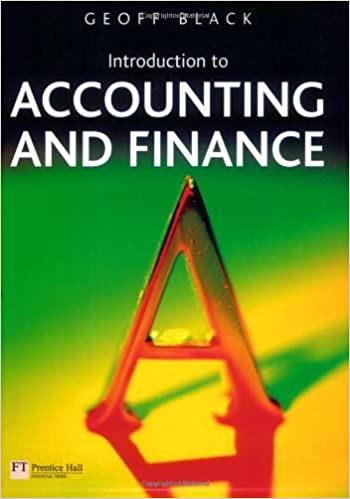Contents:


Banking, Insurance, Capital Market, Commodity Market, Pension Fund, are the major financial sectors in India. The regulators are autonomous agencies that are responsible for regulatory and supervisory activities. Each regulatory body has a unique regulatory framework to ensure the stability and integrity of the Indian financial system.
Interchange fee regulation set requirements related to the independence of payment card schemes and processing entities. One of its crucial tasks is to foster awareness of pension schemes that can benefit people after retirement. In addition, PFRDA roles include pension coverage in the country’s rural areas. Since it works closely with SEBI, AMFI must comply with SEBI’s regulations. To assist the central government in corresponding to the recognition or the withdrawal of recognition from any association. Another significant responsibility of the regulatory body is to provide training to intermediates so that they can educate people about the various pension schemes in the country.
Users of the Federal Reserve’s National Settlement Service include cheque clearing houses, automated clearing house networks and bank card processors. Promotes consumer protection and community development through supervision and administration of consumer laws and regulations. A European single-market infrastructure gateway with multi-vendor connectivity, available for all FIs performing HVPS activities based on XML requirements according to ISO standards. MAS may designate a payments system under the PS Act if it is considered to be a systemically important payments system or a system-wide important payments system, or if it is in the public interest to do so. It is also evident that there are downsides to following only a single approach and hence, it is very rare to see that only a rule- or a principle-based approach being followed.
Deep Ocean Currents Around Antarctica Headed For Collapse – Eurasia Review
Deep Ocean Currents Around Antarctica Headed For Collapse.
Posted: Sun, 02 Apr 2023 07:00:00 GMT [source]
The advantage of this system is that if a who regulates the money circulation in india is in trouble and does not have the funds to return to its depositors, it can borrow from the RBI. For performing this role, the RBI is also a regulator of the banks and tries to make sure that no bank goes too much out of line with the prudential norms. When it has lent out money to insolvent borrowers who are not paying back the interest on the loans they have taken and are not in a position to return the capital they have borrowed. If this debt is large in relation to the total lending of the bank, then the bank is in trouble since it does not have the money to pay interest to its depositors or return their deposits. In India, this problem has manifested itself recently as the problem of NPAs (non-performing assets) in banks. When money is released by the RBI into the economy, it goes into circulation through transactions.
Financial market regulators in India ensure the smooth facilitation of all your transactions in the Indian stock market. These market regulators play a crucial role in conducting all transactions in electronic form. Many macroeconomic factors are affected by changes in the money supply. When a certain denomination of currency note ceases to be legal tender, the amount of money in circulation decreases to that extent, as do the obligations of the central bank.
PFRDA regulates and administers the National Pension System and selects fund managers and Central Record Keeping Agencies . It prescribes norms for insurance companies for auditing, accounting, solvency commission to agents, etc. It has the power to prohibit companies from getting listed on any stock exchange. Formulates standard practices, code of conduct and also norms for the pension industry.
Financial Market Regulators & Their Functions
Central Bank Digital Currency is the digital form of a country’s fiat currency, which is regulated by its central bank. Overall, India continues to hesitate to ban crypto outright or to regulate it. Current regulations are unclear at best and don’t provide much guidance for investors. The country has been working on the digital version of the rupee and might launch it in the 2022–2023 fiscal year. Like the U.K., this island state classifies cryptocurrency as property but not legal tender. The country’s Monetary Authority of Singapore licenses and regulates exchanges as outlined in the Payment Services Act .

Japan treats trading gains generated from cryptocurrency as miscellaneous income and taxes investors accordingly. While crypto is not considered legal tender in Canada, the country has been more proactive than others about crypto regulation. Canada became the first country to approve a Bitcoin exchange-traded fund , with several trading on the Toronto Stock Exchange. The European Union became the first to adopt measures requiring crypto service providers to detect and stop illicit cryptocurrency uses. This chain can continue, now looping in another bank which has to pay the RBI Rs7.29. The banks get Rs100+90+81+72.9…and the RBI gets Rs10+9+8.1+7.29+…What the banks are getting is also going out to the public and is being used as money.
Things You Need to Know about Indian Stock Market Indices
For example, the EU and Monetary Authority of Singapore have adopted a principle-based approach. A rules-based approach generally involves rules that are precisely drafted and highly prescriptive. This approach advises participants on the actions they can and cannot engage in and provides no or limited exceptions and limited flexibility.
Fedwire funds service provides RTGS facility without netting of funds and order-by-order settlement is made to institutions and customers. In recent years, Brazil has been successful in increasing financial inclusion because it adopted and worked towards the concept earlier than other countries. Setting up of cross-border and multi-currency payment systems, e.g. the Gulf Cooperation Council .
However, the impact of demonetization is mitigated when the demonetized cash is replaced with fresh accepted currency notes. It is worth noting that even if an individual chooses to keep the cash in the form of bank deposits, it still contributes to the general money supply. According to Reserve Bank of India data, the uncertainty generated by the Covid-19 epidemic has resulted in an increase in the money supply.
India
IRDAI is another financial market regulator that comes under the Ministry of Finance and the Government of India. With the introduction of the Regulatory and Development Authority Act, 1999, private companies started taking part in the insurance sector. IRDAI is responsible for regulating and licensing the insurance and reinsurance companies in India. The main objective of this market regulator is to protect the welfare of and secure fair treatment of policyholders.
- Also, there is a healthy environment that keeps the interests of both investors and traders intact.
- It is also evident that there are downsides to following only a single approach and hence, it is very rare to see that only a rule- or a principle-based approach being followed.
- The Central Office of the Reserve Bank was initially established in Calcutta but was permanently moved to Mumbai in 1937.
- Central banks are playing an important role in constituting working committees/groups to review the developmental status in improving the digital payments ecosystem.
The coins produced in 1940 were substituted in 1947 by pure nickel coins. However, the prevailing currency remained frozen until January 26, 1950, when the country adopted its own constitution. In 1957, India introduced a decimal currency scheme where 100 paise formed a rupee. On the other hand, coins issued after 1840 bore a portrait of Queen Victoria. The Coinage Act of India, which regulates the establishment of mints and the issuance of coins, was passed in 1906 and is still in force today.
As of the date this article was written, the author does not own cryptocurrency. Singapore, in part, gets its reputation as a cryptocurrency safe haven because long-term capital gains are not taxed. One of the issues the Biden administration seeks to tackle is illegal cryptocurrency activity. In other countries, cryptocurrency is subject to different classifications and tax treatment. She holds a Bachelor of Science in Finance degree from Bridgewater State University and helps develop content strategies for financial brands. The condition during the Second World War led to Quaternary Silver Alloy replacing the regular rupee.
The offers that appear in this table are from partnerships from which Investopedia receives compensation. In September 2020, the European Commission proposed the Markets in Crypto-Assets Regulation —a framework that increases consumer protections, establishes clear crypto industry conduct, and introduces new licensing requirements. Cryptocurrency is legal throughout most of the European Union , although exchange governance depends on individual member states.
Many countries are creating policies and legislation, while others lag for various reasons. Bitcoin is not a legal tender in Brazil, but the country passed a law legalizing cryptocurrencies as payment methods throughout the country, boosting the adoption of digital currencies. Brazil’s Chamber of Deputies approved a regulatory framework legalizing the use of cryptocurrencies as means of payment in the country on Nov. 29, 2022. As of Aug. 30, 2022, crypto exchange and custodian wallet providers must comply with the reporting obligations implemented by the Office of Financial Sanctions Implementation . Crypto firms must notify the OFSI as soon as possible if they know or have reasonable suspicion that a person is subject to sanctions or has committed a financial sanctions offense.
Financial regulatory bodies ensure the integrity and stability of the financial system. Moral Suasion refers to the central bank’s attempts to convince commercial banks to support the latter’s overall monetary policy through persuasion and requests. Additionally, the central bank may encourage or suggest that commercial banks refrain from requesting additional accommodations from her or from funding speculative or unimportant activity. The money supply is the total amount of currency and other liquid assets in a country’s economy on a given date.
The Wadia-group owned airline is looking for a strategic investor in the company and is talking to potential investors. “The airline is on cash and carry mode meaning it has to pay daily for the number of flights it wants to operate. It has agreed that if there is non-payment, then the vendor can stop business,” an official of an oil marketing company said.
New Omicron Variant Being Watched, WHO Says – WebMD
New Omicron Variant Being Watched, WHO Says.
Posted: Sat, 01 Apr 2023 07:00:00 GMT [source]
There have been several instances of companies following the pyramid business model while claiming themselves to be directing-selling companies. The Federal Reserve is the nation’s largest ACH operator that processes credit and debit transfers initiated by depository institutions. The Clearing House Interbank Payments System is a private clearing house owned by FIs and governed by the Federal Reserve to manage HVPS in real time.
Financial stability, consumer protection, maintaining market confidence, and reducing possibilities of financial crime or fraud are the main objectives of the financial regulatory bodies in India. This article covers in detail the function, role and importance of the financial regulatory bodies in India. The other banks as the other banks ordinarily perform for their customers. It is not only a banker to the commercial banks, but it is the lender of the last resort. For a long time, the money supply was assumed to be a major factor in influencing macroeconomic performance and business cycles.
A soft monetary policy with a sizeable fiscal deficit can harden inflationary expectations and a perpetuation of a new higher normal for inflation. The Securities and Exchange Commission, the Chicago Mercantile Exchange, Commodity Futures Trading Commission, and the Financial Industry Regulatory Authority are all involved in some regard. Cryptocurrency transactions between private users—private wallet to private wallet—are not regulated. Cryptocurrency regulations are still being researched and developed worldwide.
To achieve this objective it makes extensive use of quantitative and qualitative techniques to control and regulate the credit effectively in the country. A rise in the money supply is typically viewed as a leading indicator of growth in consumption and corporate investments. Still, the rise did not promote either because of the Covid-19 pandemic. Investopedia requires writers to use primary sources to support their work. These include white papers, government data, original reporting, and interviews with industry experts.
